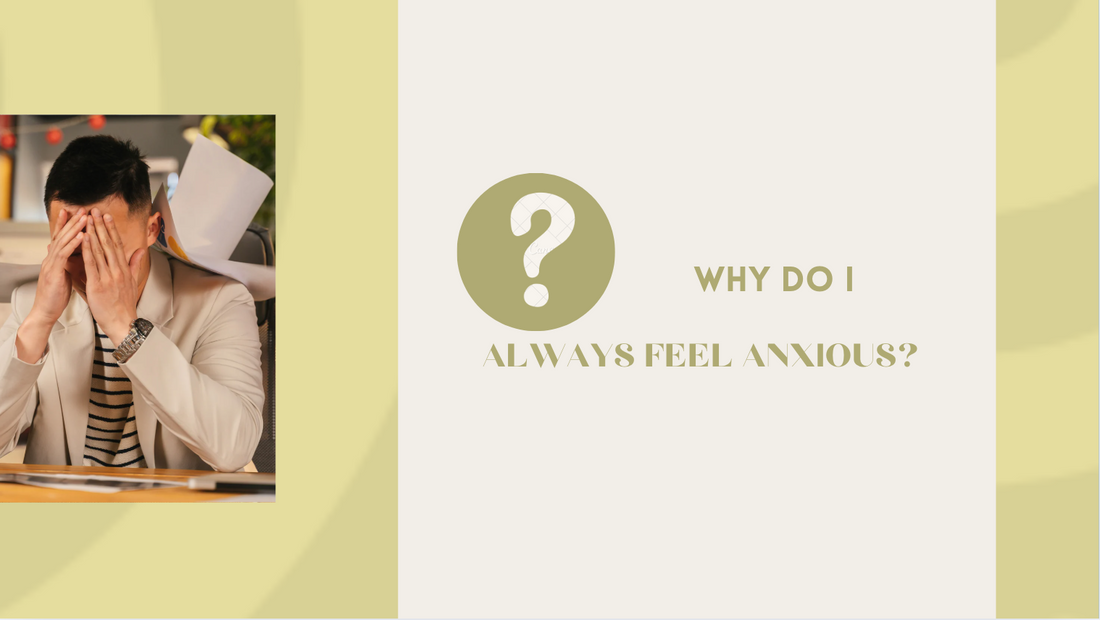
Why Do I Always Feel Anxious?
When was the last time you felt truly calm, in control & on top of the never ending to do list & life's obligations? Well here I outline 2 ways to help reduce our daily stress & anxiety...
Stress & anxiety have never been more prevalent in our daily lives, whatever our job, financial situation or relationship status, it seems no one is immune to negative spirals, cognitive distortions & generally feeling not good enough. More often than not, resulting in stress & anxiety.
Stress is generally defined as a feeling that occurs when we're in the space between what we believe we are capable of, and what we believe is expected of us. Which explains why you can be stressed as an 8 year old taking a test or the countries top brain surgeon.
The interesting part of this is 'what we believe'. Often what we perceive to be expected of us, or believe we are capable of, is generally distorted. These beliefs can then lead into the experience of anxiety, which is 8/10 times a worry about events in the past or future, which we have little control over. Yet these events, past or future have a big impact on our present feeling & wellbeing.
We have absolutely 0 control over the past events, however we can change our perception of them. A bad experience can either be viewed as a character failure, or, more helpfully something to examine & learn from for the future.
We also have 0 control over the future, especially when it comes to other people's behaviour, however we can control or reduce the likelihood of 'failure' by learning from the past, and preparing for the future - such as practicing a presentation or studying for an exam. That isn't rocket science.. however if we believe ourselves to be incompetent, no matter how hard we try or prepare, we may still fail, as we believe that is the most likely outcome for ourselves.
The most interesting thing I have learnt, and most useful, is the work around our self perception & confidence. How we talk to ourselves about our abilities, our 'mental diet' - ie social media, the news, books, friends etc & how we rewire negative thinking to develop that confidence will do significant amounts in reducing that stress gap of 'capabilities & expectations'. There's an amazing podcast, called 'The Mindset Mentor', who goes into ways we can help develop tools to help our daily lives.
The key message comes down to these 2 methods:-
1- Addressing & building our self confidence around what we're capable of, look for examples where our negative self talk is wrong (our brain automatically looks for evidence to support negative beliefs), so we need to challenge this. Find examples of when you've done something amazingly & focus on those feelings. Practising gratitude is also hugely helpful as it helps refocus our brain on the good
2-Understanding & setting boundaries around what is expected of us, and what we will & cannot do. Once we're clear on what people expect of us, we can determine what is and isn't possible or important. We can then communicate this & set expectations. This will help us feel lighter & focus on what actually aligns to our goals & values.
If we're confident in our abilities, and clear on what we can & will deliver that gap between what we're capable of and what is expected of us will be minimised. Ultimately reducing feelings of stress & anxiety. This does take practice, but is a worthwhile use of time versus spiralling & self doubt.
Of course diet, sleep & exercise all play key roles in helping reduce anxiety. However the aim of this blog was to look a bit more into the psychology & how we can adopt more action based tools to complement the physical practices.
This is a slightly different type of blog to the usual, but one I wanted to share in the name of Catalyse's mission to make the world a better & happier place to live.
Also - Acqua - The relaxation Blend will help bring a dose of calm to your daily life :)
That's all for now, I hope that helps!
Eirian X
